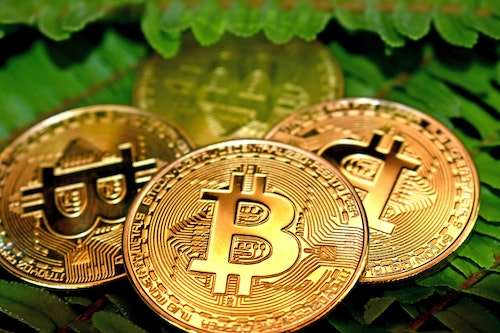Is bitcoin a currency, or an asset? And why does it matter?
Short answer: Bitcoin is currently more of an asset, but this could change in the future.
Heres why.
Bitcoin was originally created to be “A Peer-to-Peer Electronic Cash System”. This description sounds a lot like a currency.
Because of this, bitcoin was thought of as a currency in its early days. ‘Cryptocurrency’ became a broadly adopted term. However, we need to dive a little deeper to get the full story.
What’s The Difference: Currency vs Asset?
What’s the difference between a currency, and an asset? Both are similar, and both happen to be characteristics of money.
What is Money?
To get a full understanding, we need to first answer the question – what is money? Money is something that fulfills these three basic characteristics.
- Medium of exchange
- Unit of account
- Store of value
The US dollar is the most commonly accepted form of money. US dollars are technically an asset because they store economic value. However, dollars are a poor store-of-value asset because they continually lose purchasing power over time due to inflation.
An asset is something that stores economic value over time. Property, land, precious medals (gold), stock in a profitable business, bonds, a vehicle, and even artwork or collectibles can all be classified as assets (in some sense of the term).
In the case of bitcoin, the functional difference between currency and asset is that a currency is used as a medium of exchange, and an asset is something that contains economic value. Many assets have a low liquidity, and are not typically used to make purchases.
Bitcoin is a Store of Value Asset
Bitcoin stores economic value over time, and has historically appreciated over time (exponentially!). This makes bitcoin the ultimate store of value asset.
To simplify, bitcoin is an asset now. Bitcoin’s current usage as a currency is limited, but it could expand greatly in the future. Many bitcoiners, including myself, believe that bitcoin is the future of money.
Money is adopted in phases as it matures. In the beginning, money typically starts out as a store of value. Over time, money eventually becomes a medium of exchange, and then a unit of account.
Bitcoin is already an excellent store of value. With increased adoption, it will continue to become more widely accepted as medium of exchange. Eventually, bitcoin may even the worldwide standard unit of account.
Bitcoin is Taxed as an Intangible Asset
Bitcoin’s tax classification is another factor that currently makes it more of an asset than a currency. In the United States, and most other countries, bitcoin is taxed as a an intangible asset.
This limits its practicality as a currency – but of course this could change in the future. Currencies are exempt from capital gains taxation, which means there are no tax implications for buying, selling, or using a currency transactionally.
In most jurisdictions, Bitcoin is taxed as an intangible asset. This means it is subject to capital gains taxes. If you live in a place with this tax classification, every single bitcoin transaction has tax implications – buying, selling and transacting.
Yes, even if you use bitcoin to purchase a cup of coffee, you’re required to record a cost basis, and a sale price so that you can pay taxes on your capital gain (or loss). This makes using bitcoin as a currency for transactions very impractical from an accounting and tax standpoint.
Bitcoin Is Becoming A Currency
El Salvador has become the first country in the world to adopt bitcoin as an official currency.
In September of 2021, El Salvador passed a law that made bitcoin legal tender (alongside the US dollar).
In addition to making bitcoin legal tender, they have made favorable tax laws to attract bitcoin wealth into to their country. Currently in El Salvador, bitcoin is exempt from capital gains taxation.
This trend of small countries adopting the bitcoin standard seems likely to continue. As bitcoin grows, the incentive to embracing bitcoin increases proportionally. Bitcoin favors early adopters, and game theory suggests that other countries are incentivized to become early adopters alongside El Salvador, as quickly as possible.
By this I mean that nation states have more and more to gain by adopting bitcoin, and taking advantage of the early adaption favoritism. Getting in early means they will be better off than the next country that follows in their footsteps.
To learn more about this concept, check out my article Why Bitcoin Favorers Early Adopters. It gets into all the details about why this is true for individuals, businesses, and even countries.
Bitcoin Price Appreciation
There’s a strong possibility that over the long term as bitcoin gains a stronger foothold in the global economy, economic value stored in other asset classes will start to bleed their value into the bitcoin market cap. This will aid bitcoin’s price appreciation, and adoption over time.
Unlike any other time in history, equities (stocks), as well as real estate markets, and other asset classes have experienced strong asset inflation. In some cases, asset values have largely decoupled from their utility value, forming asset bubbles. Check out my article titled: Bitcoin and Asset Price Inflation to learn more.
How To Get Started With Bitcoin
Bitcoin is an unstoppable force that continues to grow stronger over time. Want to learn more about bitcoin? Get started by Learning All The Bitcoin Basics here.
Thanks for reading! Please leave any comments or questions below.
Check out all my other Bitcoin articles here.
